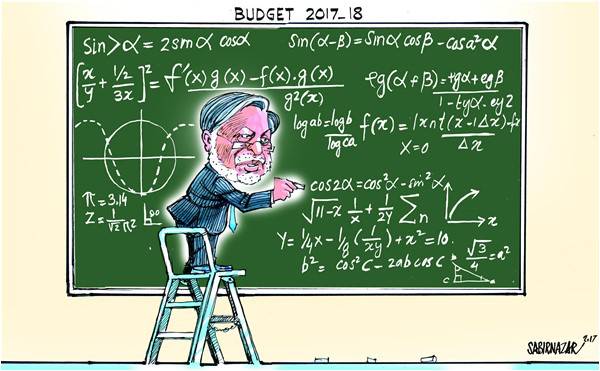
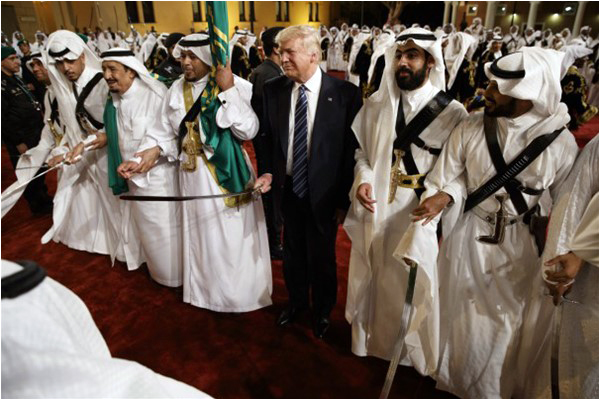
Sunni-Shia war
Sir,
On May 21, US President Donald Trump gave a clarion call to Sunni Muslim countries from the soil of Saudi Arabia to wage war against Shias/Iran and to engineer a regime change in Iran. “No discussion of stamping out terrorism would be complete without mentioning the government that gives terrorists the safe harbor, financial backing, and the social standing needed for recruitment. It is a regime that is responsible for so much instability in the region. I am speaking of course of Iran...”
The US knew that the Saudi Arabia-sponsored ‘Islamic Military Alliance to Fight Terrorism’ (IMAFT), or Sunni-Caliphate as is popularly known, of 41 Sunni Muslim countries has already come into existence with former Pakistan Army Chief General Raheel Sharif as its first commander-in-chief. Given this backdrop, what Trump has said is to make a Sunni-Shia war inevitable. In addition to grave implications for the world, this will have serious implications for India also. Consider:
(1) Americans will support a Sunni-Shia war because: (i) After the war of independence (1776–83) the US grew prosperous by supplying war material to warring European countries for about 150 years. Doing this for Sunni-NATO countries will appeal to Americans. (Trump has already signed deals with S. Arabia for about $350b out of which $110b is for defense); (ii) More jobs under these deals, as Trump argued, will appeal to Americans; (iii) Americans will think this Sunni-Shia war will solve all the problems in the North Africa Middle East region without putting American boots on the ground; (iv) It will provide America the moral ground to get rid of Assad who ruled over Syria’s worst human rights crises.
(2) This Sunni-Shia war is bound to convert a Sunni-NATO (like Christians through NATO) into a Sunni-Caliphate. The world is composed of four major groups: Christians, Muslims, the Chinese and Hindus. Except for the Muslims, the others have one military each (the Chinese and Hindus having one county for themselves, hence one military and the Christians have NATO). This is why Muslims are militarily weak and nobody is bothered about solving their problems even though tens of millions of Muslims are suffering the world over. Through this Sunni-NATO, the Sunni Muslim community will also have one military power which will go a long way in solving all the hitherto intractable problems of Muslims across the world.
In this Sunni-Shia war and to consolidate a Sunni-Caliphate, Saudi Arabia will reap a rich harvest from the crop of Wahabi-Islam it has been sowing for decades. Without nukes from China or Russia, Shia Iran stands no chance against a Sunni-NATO. China and Russia will not want to antagonize Sunnis (approx. 85% of the Muslim population) over Shias (approx. 15%)
(3) In a Sunni-Shia war, Pakistan will emerge as the most important country in a Sunni-NATO because; (i) Pakistan (as is the case with India) has had a professional military since the days of the British; (ii) Pakistan’s military is battle hardened; (iii) Pakistan has nukes; (iv) Pakistan shares a border with Iran; a Sunni-NATO will expect Pakistan to open a front against Iran from its soil.
(4) Here India may become a problem when it comes to opening a front against Iran. (Even if China remains neutral in an Indo-Pak war over Kashmir). Pakistan will demand Sunni-NATO allow it (with funds) to increase its military might, which it will likely use in a Kashmir war.
(5) India (with approx. 200m Sunni and Shia Muslims) sandwiched between Sunni-NATO countries east of Iran (Pakistan, Afghanistan, Bangladesh, Malaysia) will face tough a domestic situation as the jihadis will intervene in Kashmir. (6) After July 2016 (the death of Hizb commander Burhan Wani) Kashmir has been alienated from India. Only 2% of people voted in a recent election and students are throwing stones at security forces. The Kashmir struggle is departing from a political struggle for freedom and converting into struggle for Islam.
(7) India should stop underestimating Islam. The Sunni-Caliphate is politically not as nonviable as jingoist and communal Hindu Indians think. These Indians should know that Islam is the most modern (because it believes in the worship of the abstract in this age of science and technology) and humane religion (it is against usury and promotes Zakat, Waqf). With some updating, to make it more human rights friendly, Islam along with pan-Caliphate political parties, will make a Sunni-Caliphate a vibrant and stable political model.
Therefore, India should think about a course correction for its Kashmir policy.
Hem Raj Jain.
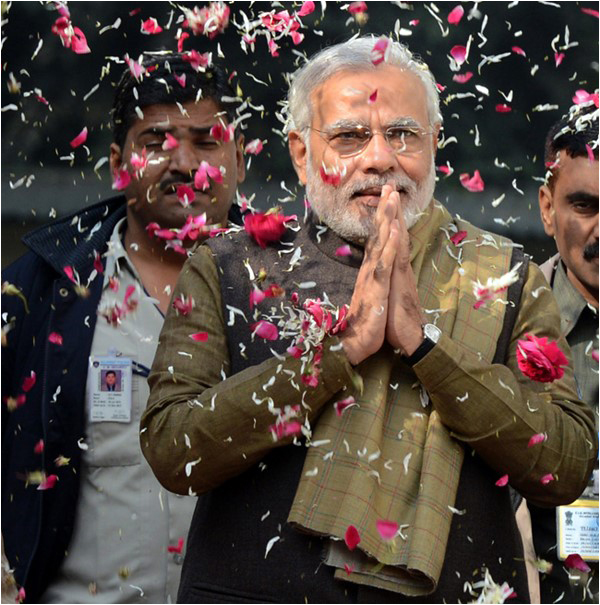
Modi, 2014 v 2017
Sir,
As he completes three years in office there’s no doubt Prime Minister Modi is a colossus among politicians. However, that still leaves open the question do you admire the man at the top or do you have concerns about his behaviour and statements? Each of us has an answer and few would deny that it divides us.
I am struck by a revealing, if not also novel paradox: Modi’s strengths also metamorphose into his weaknesses. What I dislike someone else will, perhaps, admire and what they find regrettable I, probably, see as a boon. The vast majority of Indian people believe in Modi. They feel he understands their needs and are confident he’ll deliver. Not since Indira Gandhi has such faith been invested in the ruler of the country. As it was for her, this is one of his great strengths.
The flipside is that often Mr. Modi gives the impression he knows best. It’s said he’s a good listener but frequently his mind is already made up. Demonetization is the best example of a needless decision forced through because of his personal conviction. But not for a moment will the PM accept that.
A second strength is Mr. Modi’s capacity to take bold and radical decisions. We may have seen more in the foreign policy arena than in the handling of the economy but each time they’ve captured the imagination of the country. They suggest a strong, even courageous, leader. People like that. The smack of strong government is for many reassuring.
The obverse is that Mr. Modi can be authoritarian. He is the government. The Cabinet are just the supporting cast. But, again, wasn’t this true of Indira Gandhi? Indeed, of all bold and decisive rulers?
Mr. Modi’s third strength is his gift for easy and fluent communication. He has the capacity to convey complicated concepts or politically awkward positions in simple and appealing terms. I cannot recall any previous prime minister possessed of the same skill.
Yet this is also why Mr. Modi’s carefully chosen and deliberate silences provoke criticism. He’s a natural talker so when he doesn’t speak his reticence is viewed as crafty strategy. His critics, therefore, believe he is complicit in the darkening mood of the country. For many this is perhaps the greatest fault they find in him.
In one respect the PM is a different man to the one sworn in three years ago. He no longer identifies himself with aspiration and the fulfillment of repressed ambition. That, of course, was the promise that swept him to power but he now seems to have cast it aside. Instead, he identifies with the poor and downtrodden. They are the majority and this explains the repositioning of his image.
But I, at least, am sorry to see the old Mr. Modi fade away. In 2014 his vision had a strong moral content. Three years later transformation has ensured it endures but it has also become pragmatic.
Gopal Singh,
New Delhi.
Manchester attack
Sir,
In another barbaric act at the Manchester Arena, many innocent people lost their lives. Among them was a cute little girl of eight years, Saffie-Rose Roussos. Her innocent face asks many questions one of which is, what was her fault? Why she was put to death so brutally? Even savages and animals do not attack children. Life is precious but the perpetrators of death do not know this. They are hellish creatures and destroy everything that comes in their way. It is high time the world should join to overcome the menace of terrorism, whether it is from within or without.
Rest in peace Saffie-Rose.
Iftikhar Mirza,
Islamabad.

Commemoration
Sir,
So far only five roads of Islamabad have been named after renowned leaders of the Pakistan Movement i.e. Quaid-e-Azam, Liaqat Ali Khan, A. K. Fazlul Huq, Khwaja Nazimuddin and Hussain S. Suhrawardy. It is proposed that a few roads of the capital may also be named after leaders who belonged to the region which is now our country. Since we now have an elected Mayor of Islamabad and he belongs to the Pakistan Muslim League-N it is therefore hoped that this proposal would be acceptable.
Taraq Jazy,
Islamabad.
Water in Gwadar
Sir,
Gwadar is a growing city that has been in the news because of the China-Pakistan Economic Corridor. Sadly, though, its people still do not have proper access to water. In fact, the water supply for Gwadar has become a major issue. And for investors it will also be a worry.
Dawn reported the water crisis last year as Ankara Kaur dam had reached dead level. Officials expressed concern. The rain-filled Ankara Kaur dam is the main source of water for Gwadar, Pasni, Jiwani and nearby villages. News reports have been coming through since 2014 that the city was water-stressed. Four desalination plants are lying idle.
In the last few months, the government has been focusing on Gwadar, and has held festivals, but no one is talking about the water supply. CPEC has become world famous but we don’t have a conversation about this aspect.
Recently PM Nawaz Sharif went to China for CPEC projects and discussed the international routes. With so much hype, estate agencies have been doing great business, which means they are clearly getting government support. But none of this makes sense if the citizens or residents of Gwadar don’t have access to drinking water. If the government talks about self-interest then surely Gwadar should be included as would be the interest of its people. CPEC is going to benefit Pakistan and it is the responsibility of the government to take advantage of it but also give the people of Gwadar their rights.
Faiz Mohsin,
Turbat.
Benefits of cycling
Sir,
In a study published in the BMJ British medical journal, researchers found that cycling to work was linked to the most significant health benefits - including a 45 percent lower risk of developing cancer and a 46 percent lower risk of heart disease compared to non-active travelers. Cycling is widely regarded as an effective and efficient mode of transportation optimal for short to moderate distances. Bicycles provide numerous benefits in comparison with motor vehicles, including the sustained physical exercise involved in cycling, easier parking, increased maneuverability, and access to roads, bike paths and rural trails.
Cycling also offers a reduced consumption of fossil fuels, less air or noise pollution, and much reduced traffic congestion. They lead to less financial cost to the user as well as to society at large. There is negligible damage to roads and less road area is required for cycling. By fitting bicycle racks on the front of buses, transit agencies can significantly increase the areas they can serve.
Pakistan has been promoting it through the Pakistan Cycling Federation (PCF) since 1947. The Tour de Pakistan International Cycling Race starts from Karachi and ends in Peshawar, with about 150 domestic and international cyclists taking part every year. This race is among the longest in the world, covering a distance of 1,648 km in eleven stages with four days of rest en route.
Mansoor Ahmed,
Faisalabad.
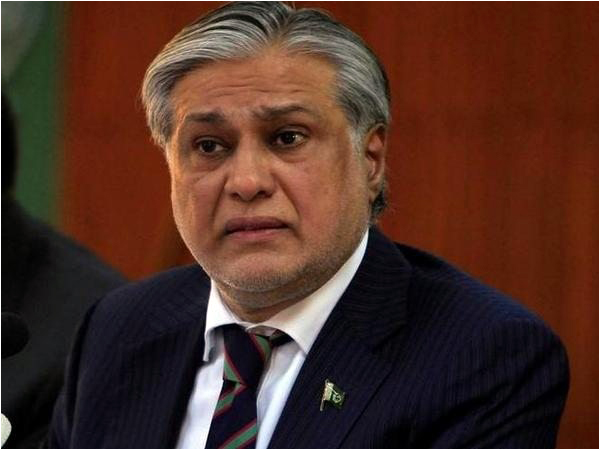
No tax on income
Sir,
This federal budget, like those presented over the past two decades, is a perfect recipe for decreasing investment in employment-generating industrial growth and creating an ever-widening gap between revenues and liabilities to a level that technically takes this country towards insolvency.
Our finance minister talked about the model of Medina Welfare State (MWS). What he forgot was that in the MWS concept, the requirement for public office, including the head of state, was unquestioned integrity, no conflict of interest, transparency and strict accountability and the auditing of every paisa spent from the national exchequer. Rulers and public office holders in MWS never indulged in spending on state expense and they always gave priority to the welfare of most deprived sections of society, and not the welfare of the affluent and powerful sections of society. No tax amnesty schemes and allotment of state lands for them.
The ever rising debt-to-GDP ratio and deficit between revenues generated from direct taxation on income vis a vis expenditures along with poor fiscal management pose the biggest threat to state sovereignty. Unchecked corruption, abuse of power and lack of accountability serve as fuel that drive the engine of terrorism and extremism in a country where the state has not prioritised investing in education, health and even providing basic items like clean drinking water to a vast majority of the population. Almost 90% of indirect taxes are raised on consumption of consumer items, utilities, banking transactions etc. and only 10% on income. A uniform levy of indirect taxation has led to high inflation.
In such an environment it is natural for traders and businessmen to shut down their factories and instead invest in real estate and construction of shopping malls, plazas and land development schemes where profits are phenomenal and taxes levied on a sale are calculated at less than 10% of market value. The conflict of interest of a powerful segment of the civil and uniformed bureaucracy who are the beneficiaries of multiple allotments of prime real estate and the nexus between the political elite and land mafia of this country are the biggest impediment to our economic revival.
Ali Malik Tariq,
Lahore.
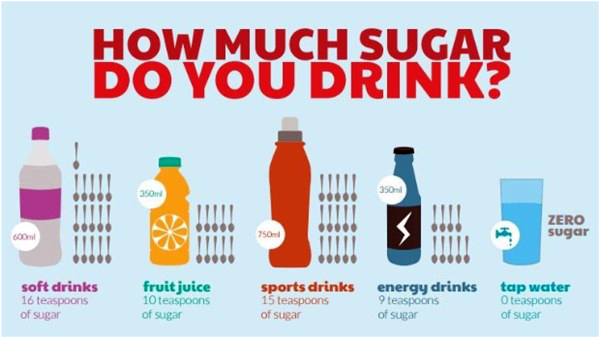
Killer colas
Sir,
People like to drink carbonated drinks in Ramzan. They are marketed on TV and on social media a lot during this month. But it is proven now that adult and childhood obesity is linked to excessive intake of carbonated drinks. At first sight, these drinks seem economical but they are bad for your health because of ingredients such as carbonated water, citric acid, sodium benzoate food coloring, preservatives and aromas.
Citric acid coded as E330 and is a pivotal ingredient. Another is E338 commonly known as Orthophosphoric acid. It prevents calcium absorption inside the body and leads to eye and skin infections, and has effects on bones. Sodium benzoate is listed as E211 and can be harmful for asthmatic patients. According to Sheffield University, it can deactivate human DNA and may lead to Parkinson’s disease and liver infection.
Aspartame is a sugar substitute coded as E951. Under certain conditions, it breaks down into methanol gas which may result in blindness and damage to the optic nerve. Warm drinks frequently change it into formaldehyde. According to the US Food & Drug Administration (FDA), Aspartame accounts for over 75% of harmful reactions to food additives that may cause convulsions and death. Sodium Cyclamate, coded as E952 and commonly known as artificial sweetener, was banned by the FDA because of it cancer-causing actions.
A 12-ounce bottle with artificial sweetener can increase the risk of Type 2 diabetes by 33%. A recent study in 40,000 men found that sugary drink increase your heart disease risk by 20%. One bottle has about 10 teaspoons of sugar.
There is a dire need to create awareness among young people and the authorities must ban these drinks.
Haider Ali,
Lahore.

